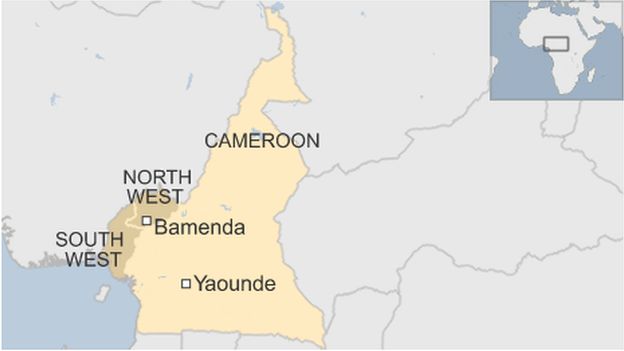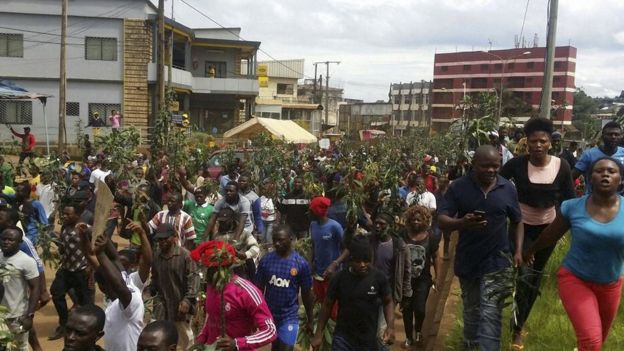
Escalating violence in Cameroon has led to armed separatists and security forces attacking and torturing people in the country's Anglophone regions, according to a new report by Amnesty International.
"They tied our hands behind our backs, gagged us and tied our faces with our towels and shorts, which they tore. They, then made us lie in the water, face down for about 45 minutes," a man, one of 23 people detained in the South-West region's town of Dadi, told Amnesty of the alleged torture he experienced at the hands of military.
"During three days, they beat us with shovels, hammers, planks, and cables, kicked us with their boots and poured hot water on us… when I tried to move and shouted, one of them used the cigarette he was smoking to burn me."
A teacher from a government school in the North-West region - one of the two mainly English-speaking areas where activists are demanding independence - told Amnesty how armed separatists raided the school and shot him in the leg.
"The assailant […] told me that I was still coming to school in defiance of calls for a schools boycott. He then asked me to raise my hands, but before I could do so, he shot me. I fell to the ground," the teacher said.
These are some of the 150 accounts, from victims and eye-witnesses, documented by Amnesty about conflict in the Central African nation.
The mainly English-speaking the North-West and South West have been gripped by unrest since activists stepped up their campaign for independence in 2016.

They claim the country's French-speaking majority is marginalising the English-speaking minority.
Amnesty alleges the ensuing government crackdown and unrest has gradually turned into an armed conflict, leaving the general population at the whim of two opposing forces.
"People in Cameroon's Anglophone regions are in the grip of a deadly cycle of violence," Samira Daoud, Amnesty's deputy director for the region, said in a statement.
"Their [government] heavy-handed response will do nothing to calm the violence - in fact it is likely to further alienate Anglophone communities and fuel further unrest," she said.
"Security forces have indiscriminately killed, arrested and tortured people during military operations which have also displaced thousands of civilians," Ms Daoud added.
The report alleges the military destroyed villages. It also claims detainees were blindfolded and severely beaten with wires, sticks, guns and wires, "as well as being electrocuted and burnt with hot water", the report says.
Didier Badjeck, an army spokesman, dismissed Amnesty's claims of torture and violence as "rumours".

Many in Cameroon's English-speaking minority have protested against discrimination
Armed separatists are also accused by Amnesty of killing 44 security force members and attacking dozens of schools between February 2017 and May 2018 in a bid to "strike fear amongst the population".
Teachers and students are being targeted for not participating in the boycott of schools seen by many as a symbol of how the English language has been marginalised by the authorities, Amnesty says.
Separatists have gone "as far as burning down schools and targeting teachers who did not enforce the boycott," Ms Daoud said.
Amnesty also documented five attacks on traditional chiefs, accused of sympathising with the government.
The rights' group says authorities have to protect the general population by ensuring "accountability for crimes committed by the security forces as well as by the armed separatists".
"They must immediately end the use of unlawful, unnecessary and excessive force and ensure that people are protected," the report said.
Cameroon's President Paul Biya has condemned "all acts of violence, regardless of their sources and their perpetrators," in a 2017 Facebook post.
Cameroon was colonised by Germany and then split into British and French areas after World War One.
Following a referendum, British-run Southern Cameroons joined the French-speaking Republic of Cameroon in 1961, while Northern Cameroons voted to join English-speaking Nigeria.